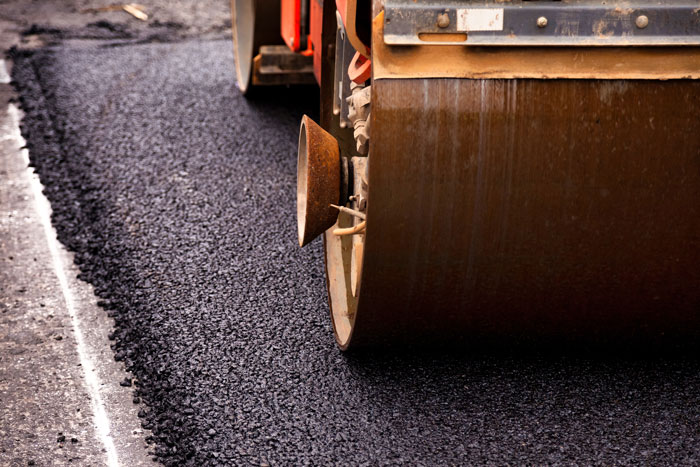
- min min
- No Comments
- October 21, 2025
Smart Road Materials: The Future of Self-Healing and Adaptive Surfaces
The road surfacing industry is entering a new era of innovation — one where smart materials can heal themselves, respond to temperature changes, and even communicate maintenance needs in real time. These advanced technologies are set to transform the way we build and maintain roads across the UK, creating longer-lasting, safer, and more sustainable infrastructure.
As East Herts Surfacing continues to lead the way in reliable and durable surfacing solutions, it’s clear that the future lies in smart road materials — the next major leap forward in road construction.
What Are Smart Road Materials?
Smart road materials are advanced composites or modified asphalts designed to react intelligently to environmental conditions. Unlike traditional tarmac or asphalt, these surfaces are engineered to adjust, repair, or monitor themselves automatically.
There are three main types of smart material technologies currently reshaping the industry:
Self-healing asphalt – Materials that repair small cracks and surface damage without human intervention.
Temperature-responsive surfaces – Asphalts that adapt to heat and cold to prevent cracking and deformation.
Sensor-integrated pavements – Roads equipped with embedded technology that monitor stress, moisture, and traffic data.
1. Self-Healing Asphalt: Extending Road Lifespan Naturally
One of the most promising developments in road technology is self-healing asphalt. By embedding special steel fibres or encapsulated polymers within the asphalt mix, the material can “heal” small cracks when heat or induction energy is applied.
Here’s how it works:
- Over time, minor cracks appear in the asphalt due to traffic and weather.
- When these cracks form, they trigger the release of healing agents (such as bitumen rejuvenators or mineral oils).
- The agent fills the crack, bonding the material back together before it spreads further.
This process can extend the lifespan of a road surface by 30–50%, reducing the frequency of maintenance and resurfacing projects. It’s a smart, sustainable approach that reduces costs and waste.
2. Temperature-Responsive Surfaces for UK Weather Conditions
In the UK, roads must endure constant freeze-thaw cycles, heatwaves, and heavy rain — all of which can cause surface deterioration. Temperature-adaptive surfacing materials can sense these changes and adjust their properties accordingly.
For example:
- During hot weather, phase-change materials soften slightly to reduce cracking and improve flexibility.
- In cold weather, they become more rigid to resist rutting and deformation.
- Some materials even reflect excess solar radiation, preventing overheating.
These “smart” asphalts help keep roads safer year-round, particularly in regions like Hertfordshire and Essex, where weather extremes are becoming more common.
3. Sensor-Integrated Roads: Data for Smarter Maintenance
Imagine a road that tells you when it needs repairing. That’s exactly what sensor-integrated smart roads are achieving.
Using embedded sensors, roads can:
- Detect changes in moisture, pressure, and stress levels.
- Send real-time data to maintenance teams.
- Identify weak spots before visible cracks or potholes form.
This predictive maintenance technology allows councils and contractors to plan interventions efficiently — saving time, reducing disruption, and preventing serious surface failure.
The Benefits of Smart Road Materials
✅ Reduced Maintenance Costs
With surfaces that repair themselves or send early warnings, maintenance becomes proactive instead of reactive — saving both time and money.
✅ Greater Longevity
Smart materials last longer by actively resisting common forms of wear, such as cracking, rutting, and water infiltration.
✅ Improved Safety
Consistent, well-maintained road surfaces reduce the risk of skidding, hydroplaning, and surface deterioration hazards.
✅ Environmental Sustainability
Using self-healing and adaptive materials means fewer resurfacing projects, reduced material waste, and lower carbon emissions — key benefits for environmentally conscious infrastructure planning.
Smart Surfacing in Action
While some smart road technologies are still in the testing phase, many are already being integrated into UK road surfacing projects. Pilot schemes across Europe have demonstrated successful self-healing results — and commercial applications are on the rise.
At East Herts Surfacing, we stay ahead by combining modern materials, expert workmanship, and precision installation to deliver surfaces built for the future. Our team continues to monitor developments in adaptive and self-healing surfacing to ensure we’re ready to integrate these advancements into real-world projects.
You can explore more of our innovative work by visiting our project portfolio — where quality, longevity, and performance are evident in every job we complete.
Combining Technology with Expertise
Smart materials are only as effective as the team that installs them. That’s why proper preparation, ground compaction, and finishing remain essential.
Our surfacing services include everything from tarmac installation and machine-lay surfacing to resin-bound finishes and road marking — all handled with precision and care. Whether it’s a new road, car park, or private driveway, we apply the same expert standards that ensure long-term performance and reliability.
Looking Ahead: The Future of UK Roads
The introduction of smart road materials marks a major turning point for UK infrastructure. Over the next decade, we can expect to see self-repairing highways, real-time monitoring systems, and eco-friendly materials become standard practice.
These innovations promise not just stronger and longer-lasting roads, but also safer, quieter, and more sustainable communities.
Conclusion
From self-healing asphalt to temperature-adaptive tarmac, smart road materials are redefining what’s possible in modern surfacing. As technology continues to evolve, contractors like East Herts Surfacing are ready to integrate these advancements — combining innovation with decades of practical experience.
If you’re planning a project that demands durability, sustainability, and expert precision, explore our services or view our recent projects to see what we can achieve for you.





